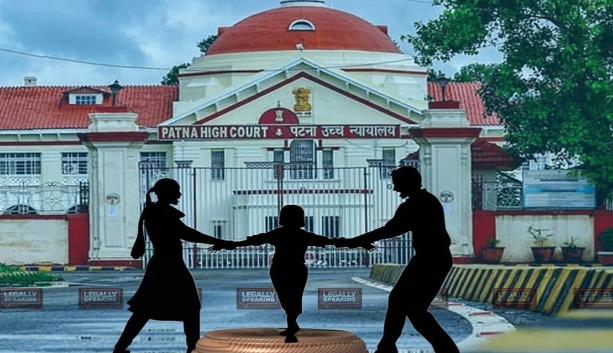
The Patna High Court recently stated that the orders passed in child custody cases cannot be made rigid and final, but can be modified to meet the requirements of the child. According to the court, custody orders are always regarded interlocutory orders.
“Under Section 26 of the Hindu Marriage Act, 1956, the Court has been empowered to pass any order or make any arrangement in respect of custody, maintenance, and education of children while the proceedings are pending or after any decree is issued under the Act. Orders passed under this section may be altered, suspended, or revoked at any time. The purpose of this section is to make adequate provisions for the welfare of young children,” the Court stated.
The decision came in response to a petition seeking to set aside an order issued by the Principal Judge of the Family Court in Patna in a matrimonial matter. The court ordered the petitioner-husband to give the respondent-wife custody of their minor child.
In 2015, the husband and wife, who had been married since 2010, filed for divorce by mutual consent. It was decided that the husband would pay his wife Rs. 5 lakhs as a settlement fee in exchange for custody of their daughter. The spouse made the payment in 2016, and the minor child was handed over to his custody.
However, after the divorce, the wife filed a petition requesting the court to grant her custody of their daughter. The husband objected to this request and asked for a refund of the money he had paid, claiming alleged harassment by the wife and her family members. In response, the wife stated her willingness to reconcile with her husband but insisted on being granted custody of their daughter.
In the impugned order, the Principal Judge of the Family Court ordered the wife to refund the money to the husband and directed him to hand over custody of the child to the mother.
The petitioner’s attorney, Niraj Kumar, argued that the lower court failed to consider the child’s welfare and the father’s position as natural guardian. He emphasised the petitioner’s “strong bond and affection” for the child, noting that handing custody to the wife, who had a history of changing her mind, was not in the child’s best interests.
Given the altered circumstances, respondent’s lawyer, Advocate Binod Kumar, argued that the child’s best interests would be served by living with her mother. He said that the petitioner and his family had failed to fulfil their obligations to the child.
The main sufferers in custody conflicts between parents, according to Justice Sunil Dutta Misra, are their children.
“While parents seek divorce by mutual consent, they may decide the issue of child custody; however, if the same is not mutually decided, it shall be decided by the Court taking the welfare of the child into account,” the court stated.
The court stated that the young kid was around 11 years old at the time, and that the contested order was issued more than 6 years ago on January 31, 2017. Observing that the circumstances had substantially changed since then, the court stated that it would be preferable to interact with the kid and determine her preference as to which parent she would prefer to stay with.
A child, according to Justice Misra, is not a possession or personal property to be divided between parents.
“The court is required to exercise parens patriae (guardian of the child) jurisdiction and compel the parties to do something which is in the best interest of the child, adding that previously there was agreement between the parties regarding permanent alimony and custody of minor child, but that those conditions are no longer mutually agreed upon,” the court stated,
The trial court is required to assess all parts of the case under the new circumstances, and for decisions on custody of a minor child, the welfare of the child is the prime consideration, the court stated further.
The court ordered the trial court to pass a new order on both parties’ petitions, including the matter of interim custody of the child, in accordance with the law.
“The learned court below is also directed to dispose of the Matrimonial Case expeditiously, and both parties are also directed to cooperate in the early disposal of the said Matrimonial Case,” the ruling stated.




